The Dutch company, Jongejans Dust Collectors, has been under Hugo and Fred Jongejans' leadership for 30 years. On 1 January, these brothers partially handed over the reins to four of their employees. Ronald de Boer, Bart Straathof, Sander Kroon, and Jesse Vonk now form the business' new executive board.
Hugo and Fred still own half the shares. They will, however, carry these over to the new board in a few years. "It is good that our solutions please our clients," say the brothers. "Every one of them benefits from a well-functioning extraction system. Good extraction means their machines work better. The products are cleaner, and there is also less dust in the space."
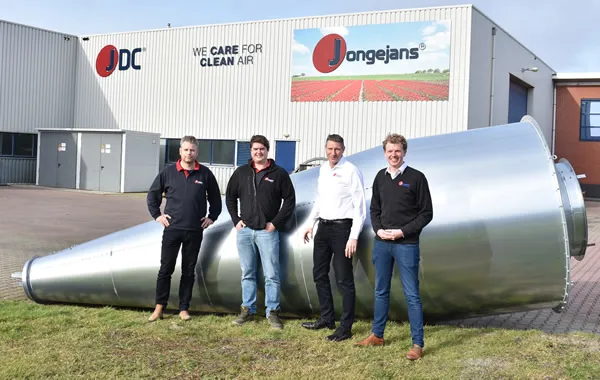
Bart Straathof, Sander Kroon, Ronald de Boer, and Jesse Vonk
There are no new faces among the executive board members. The four gentlemen have all worked at Jongejans Luchttechniek for a long time. Jongejans is a market leader in the agricultural extraction systems arena. In the past year, these four men already formed the company's management team.
Ronald de Boer has been the general director. In recent years, he has, therefore, already taken over some of the managerial and accompanying tasks. Jesse Vonk has worked in sales for years. Bart Straathof is responsible for the company's projects office and job preparation. And Sander Kroon keeps himself busy with the business' automation and operating technology.
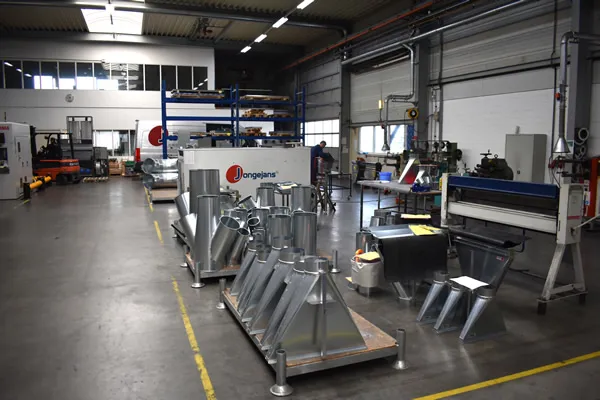
Dealer network
According to Ronald, clients do not need to fear any major changes in the coming years. "We hope to start working with more dealers. We have a dealer network of about 20 partners, with which we are delighted. These partners know the local market and enjoy customers' trust. Currently, we realize about half our turnover in the Netherlands. The rest is from clients in other European countries. We serve the North American market from our stand-alone JDC Extraction branch in Idaho. We maintain the projects' leads there from here in the Netherlands."
Potato dust extraction at Klaver-Van der Linden in Kraggenburg, the Netherlands:
Onions, potatoes, flower bulbs, and seeds form Jongejans Dust Collector's most important sectors. "First of all, extraction results in a cleaner product. That is because dust and loose skin are sucked away. However, more and more processors are also using our systems. It is beneficial for their staff's health and working environment," says Ronald.
"That is why in countries where wages are rising, we see a direct link to investment in extraction systems. We used to look to install our systems in the last part of the packaging machine. Nowadays, we are often involved in the process much earlier already. This results in a clean production process throughout the entire factory."
Dust is harmful to people and machines
"A lot of dust is released when onions are tailed off, sorted, and packed. The use of optical sorting machines is on the rise. That means it is becoming increasingly important to have cleaner products. You want to prevent a line from getting jammed at all costs," adds Sander. "Dust is not only detrimental to one's health. It is also bad for the operation of machinery. A well-tuned extraction system is, therefore, beneficial."
"It contributes to the whole onion processing line's operational reliability. Processors can save costs and time and prevent discomfort. They can do so by tackling the dust problem correctly. We see an increasing demand for full operational integration too. Here, extraction systems are visible in a company's control room. The extractor then switches on as soon as the sorting line's conveyor belt starts."
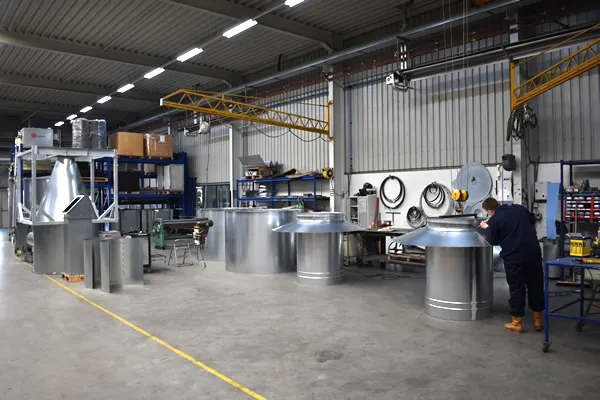
"We are also, more often, building systems that can be controlled remotely. That counts for systems we place overseas too. It is becoming increasingly important to collect data. By linking information, we can solve a lot of issues remotely. But, we can also, for example, plan maintenance intervals automatically. We can ensure the installer gets the correct parts too," explains Sander. "You also see that yesterday's production line foreman is more often becoming today's operator. This change leads to discussions of a different sort."
Jongejans works with several of the sector's other suppliers. "We do not bind ourselves to a single supplier. Our knowledge is, therefore, only expanding. That means we can design the best extraction system for a specific situation," says Bart. Jongejans Luchttechniek has 35 employees. The systems, however, often have to be finished by the time a season begins. The company, therefore, also have a permanent pool of freelancers that works for them. They return yearly for, for example, the bulb season.
Saving energy is also high on Jongejans' agenda. "For example, we specially designed one of our systems. It is called the Agra Cyclojet. It sucks up and filters onions skins. This system's cyclone has special filters. The extracted air is cleaned and returned to the processing space. In this way, no energy is lost, and the warm air remains inside. The Cyclojet is also very quiet, and the system meets environmental demands," states Bart.
Onions skins being extracted by windshifting at Van Liere & Uienpoort Dronten:
Made in Holland
"Our clients consider the fact that we produce these systems ourselves in the Netherlands as a big plus. Each system's configuration is different. That is why our extraction systems are custom-made for every situation. That is only possible if you are working from a strong base. The production line must be set up in such a way that precision work can be easily accomplished. We have the perfect testing ground here in Den Helder. We can test production development and new, sustainable applications," he adds.
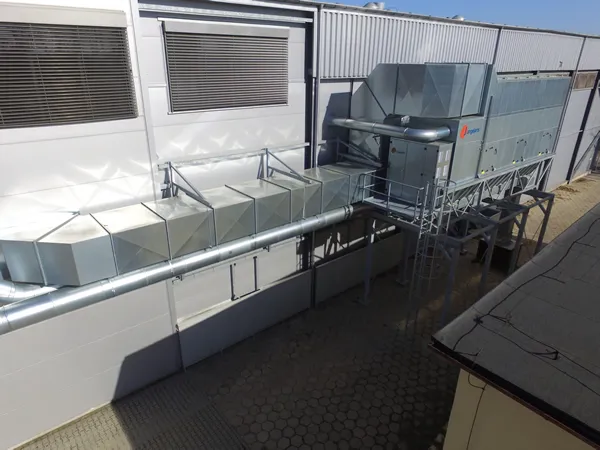
A system installed at Awex in Poland
The Dutch market remains Jongejans Dust Collectors biggest market. However, overseas potato, onion, and garlic processors also know where to find the company. "For example, last year, we installed a large filtering system at (the potato and onion processing company) Awex in Poland. We started with a simple system there. Since then, we have provided the entire factory with a separate extraction system. It is used for seal smoke. That ensures there are fewer harmful substances in the space," continues Jesse.
Another reference is a garlic plant in California. There, thanks to a Jongejans windshifter, only half the workforce is needed. This system uses a blowing and sucking combination. It effectively extracts the dust from the garlic cloves. This has also resulted in a 50% capacity expansion.
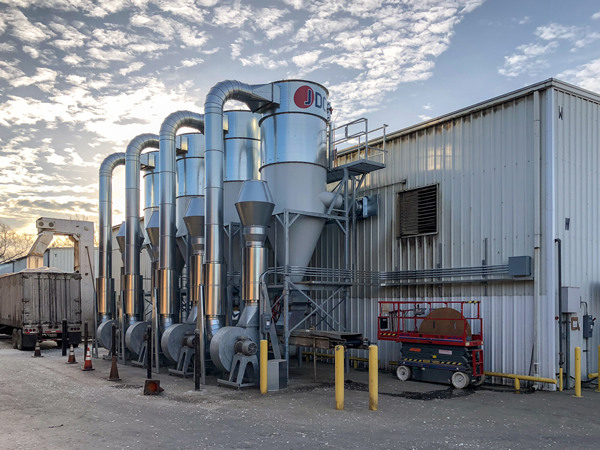
When asked where Jongejans Dust Collectors will be in five to ten years, Ronald answers," Still at the top. We want to keep leading the way in extraction techniques. We want to further innovate in operational methods and sector-specific solutions too. To enable this, we will invest further in new people in the coming years. We want to expand our lead in the market."
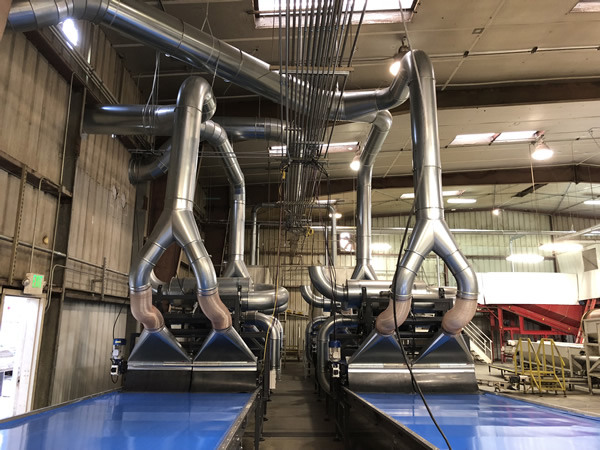
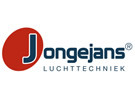 For more information:
For more information:
Jongejans Dust Collectors
5 Breeuwersweg
1786 PG, Den Helder, NL
Tel: +31 (0) 223 660 666
Email: info@jongejans-luchttechniek.nl
Website: www.jongejansluchttechniek.nl
